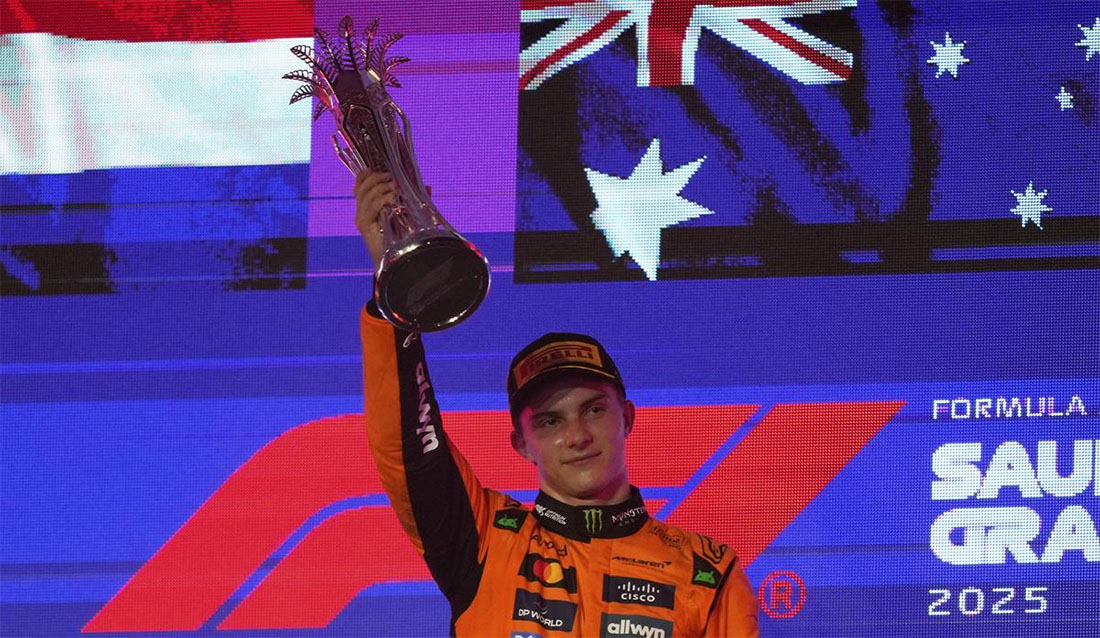Photo Credit: Getty Images
Formula 1's governing body, the FIA, has significantly relaxed the punishments for drivers who use offensive language or criticize race officials, in response to widespread criticism.
An updated version of the FIA's penalty guidelines, issued to stewards on Wednesday, eliminates the threat of race bans and substantially lowers the fines that can be imposed for such infractions.
Under the previous rules, drivers faced fines of up to €40,000 (£33,700) for a first offense, with a second infraction potentially resulting in a €80,000 fine and a race suspension. Now, the starting fine has been reduced to €5,000 (£4,200), and the possibility of a race ban has been removed. However, the FIA noted that more serious disciplinary actions could still apply in extreme cases.
The earlier system also imposed heavier penalties on drivers from top-tier racing series, like F1, by multiplying their fines fourfold—but this multiplier has now been scrapped.
The revised document also introduces a distinction between comments made during high-pressure situations—like races—and those made in calmer settings, such as press conferences. This acknowledges that emotional reactions in the heat of competition are different from deliberate remarks made in more controlled environments.
That said, the FIA retains the right to penalize drivers for using foul language, insulting officials, criticizing the governing body, or making political, religious, or personal statements that violate its neutrality principles. Fines for this type of misconduct, as well as any public incitement to violence or hatred, remain higher—set at €20,000 (£16,800).
The FIA referred to these updates as "major improvements" to Appendix B of its sporting code. The adjustments follow harsh criticism of the stricter penalties introduced in January, which many in the racing community viewed as excessive.
Those initial penalties were introduced after incidents in 2023, including one where world champion Max Verstappen was ordered to complete community service for swearing during a press conference at the Singapore Grand Prix. Following this, F1 drivers signed an open letter urging the FIA to treat them like "adults."
More recently, Mercedes driver George Russell—who serves as a director for the Grand Prix Drivers' Association—demanded the FIA take real action instead of dropping hints, referencing an earlier Instagram tease from FIA President Mohammed Ben Sulayem.
Ben Sulayem commented on the changes, saying:
"As someone who's competed in rallying, I understand the emotions involved in racing. We conducted a thorough and collaborative review, gathering input from across FIA championships, member clubs, and other motorsport bodies. The updates to Appendix B aim to uphold sportsmanship while also giving stewards practical tools to respond when the sport's reputation is at stake."
FIA Drivers' Committee President Ronan Morgan added:
"Drivers serve as role models to young fans and represent the spirit of motorsport. Their behavior matters. However, it's crucial to differentiate between things said in the heat of racing and those said in formal settings like press briefings. These updates reflect that understanding."
Within Formula 1, the rule change is seen as a rare concession by Ben Sulayem—his second notable retreat this year.
Back in April, engine manufacturers pushed back on his attempt to revive V10 naturally aspirated engines by 2028 or 2029, despite the current engine regulations for turbo hybrids running from 2026 to 2030. While the proposal remains unofficially under discussion, it has effectively been shelved due to a lack of support.
Meanwhile, BBC Sport recently reported that Ben Sulayem is working on further changes to the FIA statutes, which would expand his authority while reducing oversight—a move likely to spark further debate.


